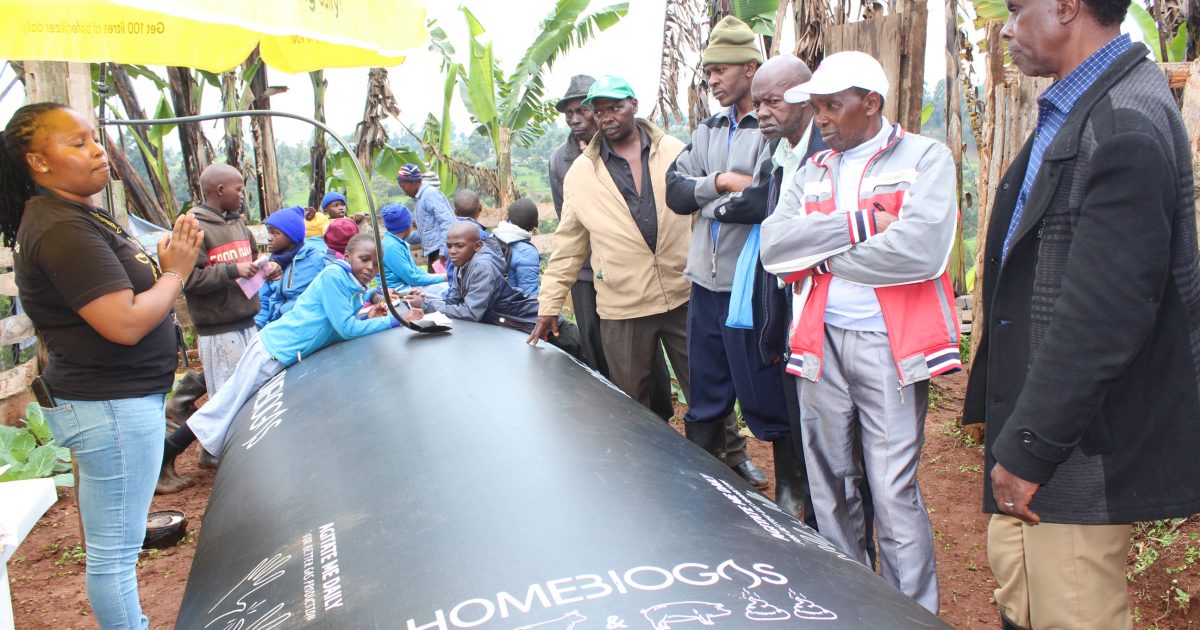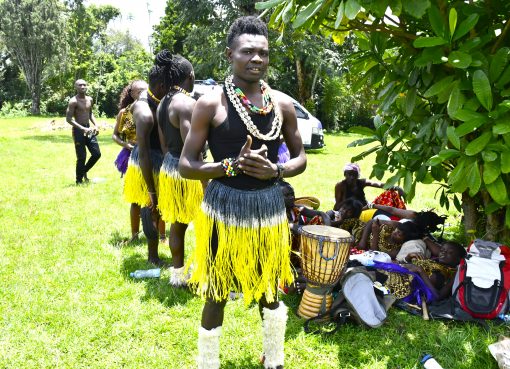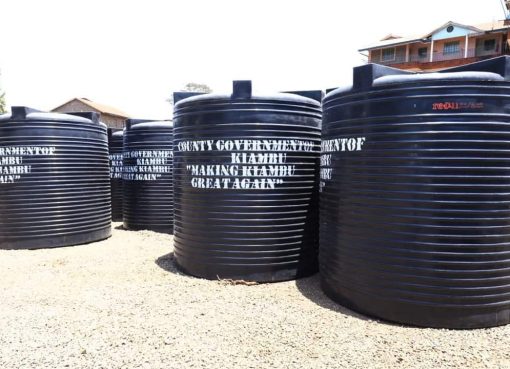A section of farmers drawn from the tea growing zones of Murang’a County have been trained on various ways of crop diversification
The move is intended to help the tea farmers not to depend only on earnings from tea, whose prices keep fluctuating, to support their families.
In a training organized by the Participatory Ecological Land Use Management (PELUM) association, the farmers were trained on how they can grow early maturing crops as well as they continue keeping their tea.
The farmers had streamed into a demonstration farm in Kangari in Kigumo Sub County in their hundreds, eager to learn how they can boost their tea earnings and other alternative crops that can do well in their areas.
PELUM zonal coordinator in Central and Nairobi regions, Sarah Wambui said her organization which is working with small-scale farmers through Organic Agriculture Centre of Kenya (OACK), trained the farmers on diversifying their agricultural practices to earn more from their farms.
“Many tea growing farmers have over the years failed to maximize the use of their farms to produce sufficient income to support their families,” said Wambui.
She observed that when tea prices fluctuate, the crop leaves many farmers reeling in losses and unable to sustain their families and also unable to pay for their children’s education.
Wambui said they are currently working with 18 other organizations to reach small scale farmers to promote sustainable resource management through the use of bio-inputs, organic farming as a business and the inclusion of youth and women in organic agribusiness.
“We have seen major changes in that people are slowly shifting towards agroecology and women are now embracing other forms of farming that allows them to get an income,” she said, explaining that most women provide labor in their farms but the proceeds go to their husbands.
She said the organization also sensitizes farmers on their rights and lobbies for policies that empower them at the county and national level.
OACK’s executive director David Karanja said the training was aimed at empowering the tea farmers to diversify income generation on their farms for better returns.
“Tea growing areas have the potential to grow sufficient foodstuff for farmers’ consumption and sale,” said Karanja, adding that they want farmers to be able to maximize local resources.
The training, he noted, also promoted growing of herbs and spices such as paprika, mints, oregano, lemongrass and rosemary among others that farmers can consume as medicine while making an extra income.
“Farmers have been trained on how to make biogas to cut their cooking fuel costs and mitigate the effects of climate change, and see the great potential that their farms hold to boost their living standards,” he said
Mwangi Kagore, a farmer who travelled from Ndaka-ini area in Gatanga Sub County said he was amazed to see how much more a small farm can produce through crop diversification.
“We formed an organic farming group and started producing organic manure which we were using on our tea crops but did not know how to maximize its use,” said Kagore
Kagore said such training is instrumental in expanding farmers’ knowledge in agricultural diversification practices to help them earn more returns from their farms.
He expressed interest in planting herbs and spices that were showcased on the farm and which occupy little space while earning more money.
“My farm has a little extra space that I can use to plant some of the herbs to complement my income,” he said.
Wilfred Wanyoike, the zonal representative of HomeBiogas company, said farmers can also get bio-slurry from the used cow-dung that can be used to alkalinize soils and boost soil fertility, and can also be used in planting and top dressing to boost crop production.
He explained to curious farmers how they can use just two buckets of cow dung to produce enough energy to cook for five hours.
“You mix the cow dung with four buckets of water to produce the energy. This means farmers with one or two cows can benefit from it.”
By Anita Omwenga and Bernard Munyao





